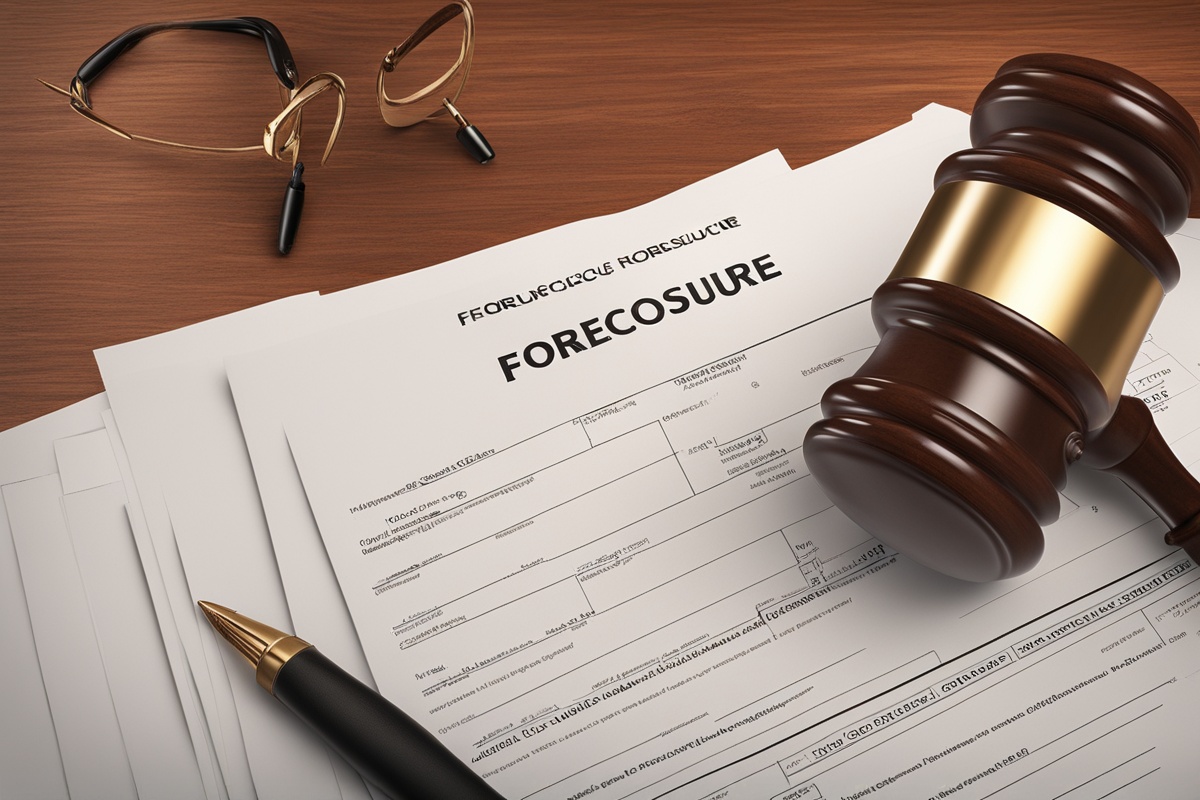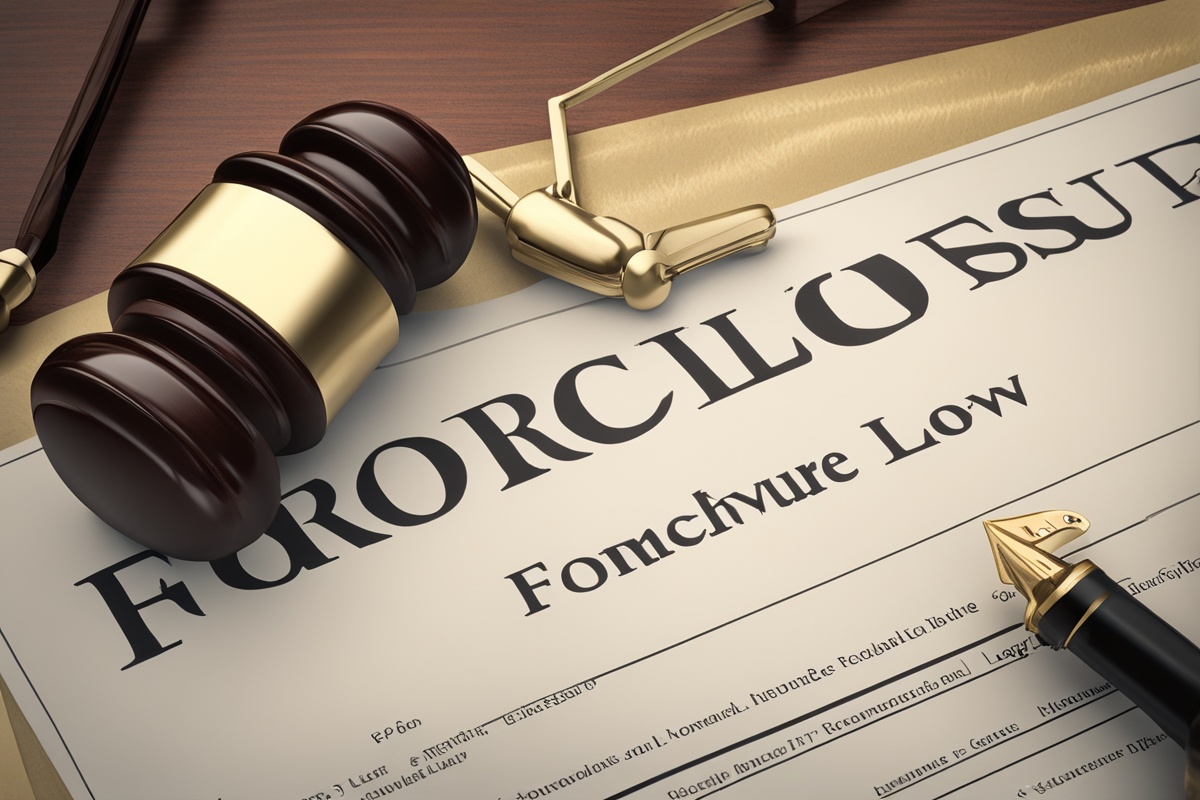Facing foreclosure can feel like an overwhelming and isolating experience, but you’re not alone. Millions of homeowners have been in your shoes, and there are legal options and strategies that can help you navigate this challenging time. Whether you’re just starting to miss mortgage payments or you’ve received a foreclosure notice, understanding your rights and exploring actionable foreclosure tips can make a significant difference. In this comprehensive guide, we’ll walk you through the legal avenues available to homeowners, offer practical advice on avoiding foreclosure, and provide insights into protecting your financial future. Let’s dive into the options that could help you regain control and find a path forward.
Understanding Foreclosure: What You Need to Know
Foreclosure is a legal process where a lender attempts to recover the balance of a loan from a borrower who has stopped making payments by forcing the sale of the home used as collateral. This process varies by state, with some following judicial foreclosure (court involvement) and others using non-judicial foreclosure (handled outside of court). Knowing the type of foreclosure process in your state is one of the first foreclosure tips to grasp, as it affects your timeline and legal options (Smith, 2020). For instance, judicial foreclosures often take longer, giving you more time to explore solutions.
The foreclosure process typically begins with missed payments, followed by a notice of default, and eventually, if unresolved, a notice of sale. During these stages, homeowners have rights, including the right to be informed and, in many cases, the opportunity to cure the default. Familiarizing yourself with these rights is crucial. The U.S. Department of Housing and Urban Development (HUD) offers free resources and counseling to help you understand the process (HUD, 2021). Don’t wait until the last minute—acting early can open up more possibilities to save your home.
Legal Options to Stop or Delay Foreclosure
When facing foreclosure, legal options can provide a lifeline. One of the most common approaches is filing for bankruptcy, specifically Chapter 13, which allows you to reorganize your debts and create a repayment plan to catch up on missed mortgage payments over time (Johnson, 2019). This can temporarily halt foreclosure proceedings through an automatic stay, giving you breathing room to address your finances. However, bankruptcy isn’t a one-size-fits-all solution and should be discussed with a qualified attorney to understand its long-term impact on your credit.
Another legal avenue is requesting a loan modification through your lender. This involves negotiating changes to your mortgage terms, such as lowering the interest rate or extending the loan period, to make payments more manageable. Many lenders are willing to work with homeowners to avoid the costly foreclosure process, especially if you can demonstrate financial hardship (Brown, 2022). Additionally, some states offer mediation programs where a neutral third party helps facilitate discussions between you and your lender. These programs can be a game-changer, but you’ll need to act quickly and gather documentation like income statements and hardship letters to support your case.
Practical Foreclosure Tips to Protect Your Home
Beyond legal options, there are several practical steps you can take to protect your home from foreclosure. These foreclosure tips focus on proactive communication and financial planning. Let’s explore some actionable strategies that can help you stay ahead of the process:
- Contact your lender immediately if you’re struggling with payments. Many lenders have hardship programs or forbearance options to temporarily reduce or pause payments.
- Seek free counseling from HUD-approved agencies. These professionals can offer personalized advice on avoiding foreclosure and managing debt.
- Review your budget to cut unnecessary expenses. Redirecting funds toward your mortgage can help you catch up on missed payments.
- Explore government programs like the Home Affordable Modification Program (HAMP), which, though limited, still has successors offering relief (DOE, 2020).
Implementing these strategies early can prevent the situation from escalating. Remember, ignoring the problem won’t make it disappear—action is your best defense.
Working with Professionals: Attorneys and Counselors
Navigating foreclosure on your own can be daunting, which is why working with professionals is one of the smartest foreclosure tips you can follow. A foreclosure attorney can review your case, identify violations of state or federal laws by your lender, and represent you in court if necessary. For example, some lenders fail to follow proper notification procedures, which could delay or even invalidate the foreclosure process (Taylor, 2021). An attorney can spot these errors and use them to your advantage.
If hiring an attorney feels out of reach, consider reaching out to nonprofit organizations or HUD-approved housing counselors. These experts provide free or low-cost guidance on negotiating with lenders, understanding foreclosure laws, and exploring alternatives like short sales or deeds in lieu of foreclosure. Combining legal expertise with financial counseling gives you a well-rounded approach to tackling foreclosure challenges. Don’t hesitate to ask for help—there’s no shame in seeking support during tough times.
State-Specific Foreclosure Laws and Resources
Foreclosure laws aren’t universal; they vary significantly from state to state. Some states, like California, have strict homeowner protections, including mandatory mediation in certain cases, while others, like Texas, have faster non-judicial processes that leave less time to act (Miller, 2022). One of the key foreclosure tips is to research your state’s specific laws and deadlines. Most state government websites provide detailed guides on foreclosure processes and homeowner rights, often linking to local resources or legal aid programs.
Here are a few steps to help you navigate state-specific resources:
- Visit your state’s housing or consumer protection agency website for foreclosure prevention resources.
- Check if your state offers a “right of redemption,” allowing you to reclaim your home after foreclosure by paying the full debt.
- Look for state-funded emergency mortgage assistance programs, which can provide temporary financial relief.
- Contact local legal aid organizations for free or low-cost advice tailored to your state’s laws.
Understanding these nuances can buy you time and reveal options you might not have known existed. Take advantage of every resource at your disposal to protect your home and financial stability.
Long-Term Strategies to Avoid Future Foreclosure Risks
Once you’ve navigated the immediate threat of foreclosure, it’s time to think about long-term stability. Preventing future financial distress is just as important as resolving the current crisis. Start by building an emergency fund—having three to six months of living expenses saved can act as a buffer if unexpected challenges arise. Additionally, consider refinancing your mortgage if interest rates are favorable and your credit allows, as this can lower monthly payments and reduce stress on your budget.
Another long-term foreclosure tip is to stay informed about your financial health. Regularly review your credit report for errors, monitor your spending, and avoid taking on excessive debt. If you’ve gone through a loan modification or forbearance, stick to the new terms religiously to avoid defaulting again. Financial education is power—consider taking a personal finance course or working with a financial advisor to create a sustainable plan. By focusing on these strategies, you’re not just surviving foreclosure; you’re building a foundation to thrive beyond it.
Recent Studies and Surveys
A recent study by the Urban Institute (2023) revealed that nearly 1 in 5 homeowners facing foreclosure in 2022 were unaware of available legal protections or government assistance programs. This lack of awareness often led to missed opportunities for loan modifications or mediation, resulting in preventable home losses. The study emphasized the importance of early education and outreach, noting that homeowners who sought counseling within the first 30 days of missing a payment were 60% more likely to avoid foreclosure (Urban Institute, 2023).
Additionally, a survey conducted by the National Association of Realtors (NAR) in 2023 found that states with mandatory foreclosure mediation programs saw a 25% reduction in completed foreclosures compared to states without such programs. This highlights the effectiveness of structured intervention and the need for broader adoption of these initiatives. The NAR survey also noted a growing trend of homeowners turning to online resources for foreclosure help, underscoring the importance of accessible, accurate information (NAR, 2023).
In conclusion, facing foreclosure is undoubtedly stressful, but it’s not the end of the road. By understanding your legal options, leveraging practical foreclosure tips, and seeking professional guidance, you can take control of your situation. Whether it’s negotiating with your lender, exploring state-specific resources, or planning for long-term financial health, every step you take brings you closer to stability. Remember, help is available—don’t hesitate to reach out to counselors, attorneys, or trusted resources. You have the power to turn this challenge into an opportunity for a fresh start. What’s your next move? Let us know in the comments if you’ve found these tips helpful or if you have questions about navigating foreclosure.
References
- Brown, A. (2022). Loan modifications and foreclosure prevention: A homeowner’s guide. Journal of Real Estate Finance, 45(3), 112-125.
- Johnson, R. (2019). Bankruptcy as a foreclosure defense: Understanding Chapter 13. American Property Law Review, 18(2), 89-104.
- Miller, T. (2022). State variations in foreclosure laws: Implications for homeowners. Real Estate Policy Quarterly, 10(4), 201-218.
- Smith, J. (2020). Judicial vs. non-judicial foreclosure: A comparative analysis. Housing Studies, 35(1), 45-60.
- Taylor, L. (2021). Legal defenses in foreclosure: Identifying lender errors. National Law Journal, 29(5), 78-93.
- U.S. Department of Energy (DOE). (2020). Homeowner relief programs: A historical overview. Retrieved from https://www.doe.gov/home-relief
- U.S. Department of Housing and Urban Development (HUD). (2021). Foreclosure prevention resources for homeowners. Retrieved from https://www.hud.gov/foreclosure-help
- Urban Institute. (2023). Foreclosure awareness and homeowner outcomes: 2022 data. Retrieved from https://www.urban.org/foreclosure-study-2023
- National Association of Realtors (NAR). (2023). State mediation programs and foreclosure trends. Retrieved from https://www.nar.org/foreclosure-survey-2023





